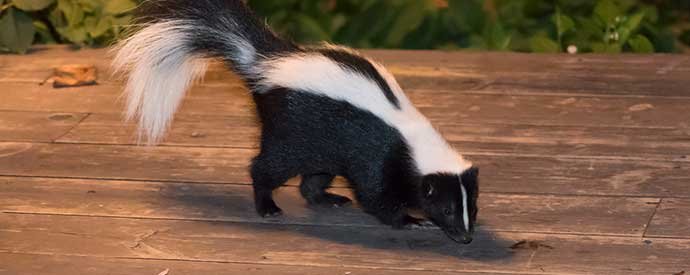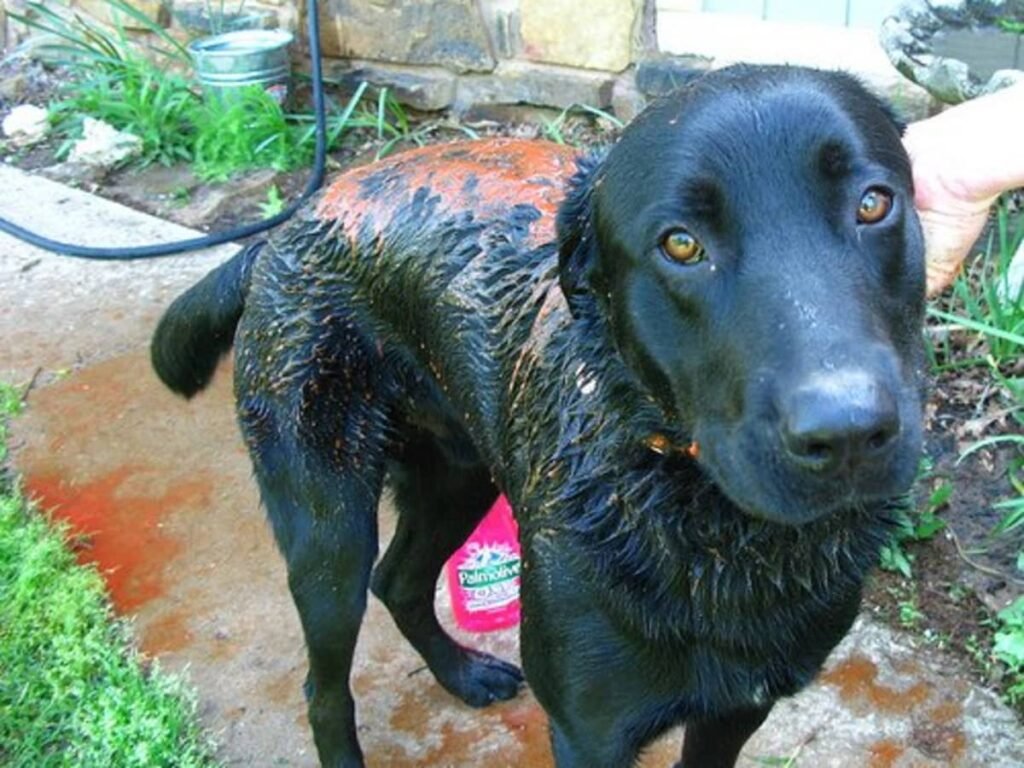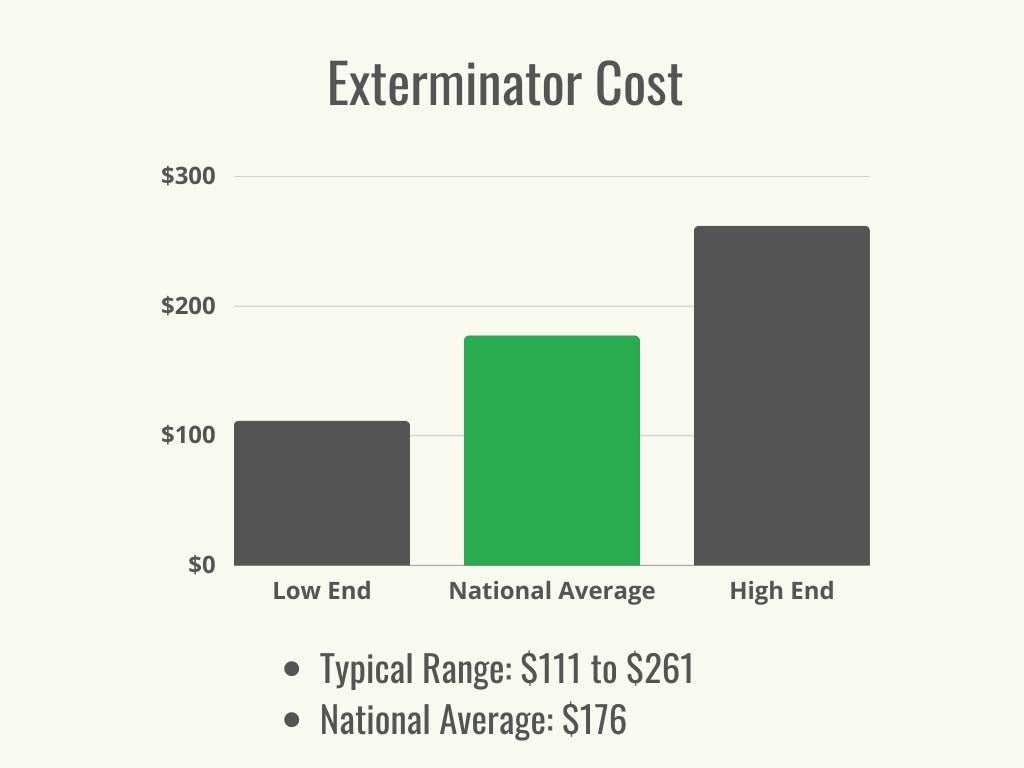Living in Long Beach, you may have encountered a skunk or two roaming the streets at night or even caught a whiff of their distinct odor. But have you ever wondered if these adorable yet pungent creatures pose any health risks to you or your furry companions? In this article, we will explore the potential health risks associated with skunks in Long Beach and shed light on how you can keep yourself and your pets safe in their presence.


Potential Health Risks of Skunks to Humans
Skunks can potentially pose health risks to humans due to various factors, including the transmission of diseases, physical injuries, and allergic reactions. Understanding these potential risks is crucial for ensuring the well-being and safety of individuals living in areas where skunks are present.
Transmission of Diseases
One of the primary health risks associated with skunks is the transmission of diseases. Skunks are known carriers of diseases such as rabies, leptospirosis, and distemper. These diseases can be transmitted to humans through bites, scratches, or contact with the skunk’s saliva, urine, or feces.
Rabies, in particular, poses a significant risk as it is a viral disease that affects the nervous system and can be fatal if left untreated. It is crucial to seek immediate medical attention if you have been bitten or scratched by a skunk or any other potentially rabid animal.
Physical Injuries
In addition to disease transmission, skunks can also cause physical injuries to humans. While skunks are generally not aggressive and tend to avoid confrontation, they may spray a noxious odor when they feel threatened. Although the odor itself is not harmful, it can cause temporary discomfort and irritation.
However, if cornered or provoked, skunks may resort to defending themselves by scratching or biting. These injuries can range from minor scratches to more severe wounds that may require medical attention, particularly if the skin is broken.
Allergic Reactions
Skunks have the potential to trigger allergic reactions in sensitive individuals. The odor emitted by skunks, known as skunk spray, contains volatile compounds that can cause respiratory irritation, allergic rhinitis, or asthma exacerbation in some people.
If you or someone in your household has a known allergy or respiratory condition, it is important to take extra precautions around skunks to minimize the risk of exposure.
Potential Health Risks of Skunks to Pets
Pets, like humans, are also susceptible to health risks posed by skunks. Just as with humans, these risks primarily involve disease transmission, physical injuries, and allergic reactions.
Transmission of Diseases
Skunks can transmit various diseases to pets, including rabies, leptospirosis, and distemper. It is vital to ensure that your pets are up to date on their vaccinations to reduce the risk of contracting these diseases. Additionally, keeping your pets away from skunks and minimizing direct contact is crucial for their well-being.
Physical Injuries
Pets, especially dogs and cats, may encounter skunks while exploring their surroundings or if they exhibit aggressive behavior towards skunks. In such cases, physical injuries can occur due to bites, scratches, or defensive mechanisms employed by skunks. These injuries can range from superficial wounds to more severe injuries requiring veterinary attention.
Allergic Reactions
Similar to humans, pets can also experience allergic reactions to skunk odor. The volatile compounds present in skunk spray can cause respiratory distress, allergic reactions, or skin irritation in animals, particularly those with pre-existing allergies or respiratory conditions.
It is essential to provide prompt treatment and care if you suspect your pet has been exposed to skunk spray or is displaying any signs of an allergic reaction.
Preventing Skunk-related Health Risks
Preventing skunk-related health risks requires implementing various measures to minimize direct contact between humans or pets and skunks. By following these preventive measures, you can significantly reduce the potential for disease transmission, physical injuries, and allergic reactions caused by skunks.
Avoiding Direct Contact
Avoiding direct contact with skunks is one of the most effective ways to prevent skunk-related health risks. Skunks are typically nocturnal animals that roam during the evening and night. Ensuring that you, your family, and pets are indoors during these periods can greatly reduce the chances of encountering skunks.
If you come across a skunk, it is important to avoid startling or agitating them. Keep a safe distance and allow the skunk to move away on its own. Skunks typically emit distinct warning signs, such as stomping their front feet or raising their tails, indicating that they feel threatened. Respecting these warning signs and giving skunks space is crucial for preventing potential injuries or aggressive behavior.
Securing Waste and Food Sources
Skunks are often attracted to areas where food sources are readily available. To minimize the likelihood of skunks venturing onto your property, it is important to secure waste and food sources effectively. This includes securing garbage cans with tight-fitting lids, not leaving pet food or water outside overnight, and storing bird feeders in areas inaccessible to skunks.
By eliminating these attractants, you can discourage skunks from visiting your property, reducing the chances of encountering them and minimizing the associated health risks.
Maintaining Proper Yard and Home Maintenance
Maintaining a well-kept yard and home can also help prevent skunk-related health risks. Keeping your yard free of debris, dense vegetation, and potential hiding spots for skunks can discourage them from taking up residence on your property. Ensuring that there are no entry points, such as holes or gaps in fences or walls, can also prevent skunks from accessing your yard or home.
Regularly inspecting and maintaining your property can help identify and address any areas that may attract skunks or provide them with shelter, reducing the likelihood of encounters and associated health risks.
Recognizing Signs of Skunk-related Issues
Being able to recognize signs of skunk-related issues can help you take appropriate actions to address and mitigate potential health risks. By understanding these signs, you can promptly identify if skunks are present in your vicinity or if there may be an infestation on your property.
Unusual Skunk Behavior
Observing unusual skunk behavior can be an indication of potential issues. Skunks that appear disoriented, aggressive, or exhibit abnormal movements may be displaying signs of illness, such as rabies. It is important to avoid approaching or attempting to handle skunks displaying such behavior and to report these cases to local authorities or animal control agencies.
Presence of Skunk Odor
The presence of skunk odor is a clear indication that skunks are either currently present or have recently been in the vicinity. Skunk spray has a strong, distinct odor that is often described as pungent and lingering. If you detect skunk odor around your property, it is important to take precautions to avoid encountering skunks directly and to implement preventive measures.
Skunk Infestation Symptoms
If you suspect a skunk infestation on your property, there may be additional signs to look out for. These can include burrowing or digging activity, damage to lawns or gardens, or the presence of skunk tracks or droppings. Skunks are known to create dens in crawl spaces, under decks, or in other sheltered areas, so inspecting these areas can help identify signs of a potential infestation.


Actions to Take if Exposed to Skunks
In the event of exposure to skunks, it is crucial to take appropriate actions to minimize the potential health risks associated with them. Promptly seeking medical attention, addressing pet exposure, and dealing with skunk spray are essential steps to ensure the well-being and safety of both humans and pets.
Seeking Immediate Medical Attention
If you or someone you know has been bitten, scratched, or exposed to a skunk, seeking immediate medical attention is of utmost importance. Medical professionals can assess the severity of the exposure, provide appropriate treatment, and administer post-exposure prophylaxis for potential diseases such as rabies.
Even if the exposure does not involve direct contact, it is still essential to seek medical advice if there is any doubt or concern about the potential health risks associated with the encounter.
Addressing Pet Exposure
If your pet has been exposed to skunks, it is crucial to address the situation promptly. Depending on the nature of the exposure, it may be necessary to contact a veterinarian for guidance and advice on the appropriate course of action. This can include administering necessary vaccinations or treatments to mitigate the risk of disease transmission.
Additionally, it is important to thoroughly wash and clean your pet to remove any lingering skunk odor. Specialized skunk odor removal shampoos or home remedies can be used under the guidance of a veterinarian to effectively eliminate the odor.
Dealing with Skunk Spray
If you or your pet have been sprayed by a skunk, there are several steps you can take to effectively address the odor. While skunk smell can be persistent and potent, it is possible to minimize and eliminate the odor over time.
Home remedies such as vinegar and baking soda solutions or commercial skunk odor removal products can help neutralize the odor. It is important to follow the application instructions carefully and avoid contact with eyes or sensitive areas of the skin.
Skunk Control and Removal Methods
Ensuring effective skunk control and removal is essential for minimizing potential health risks and addressing issues related to skunks. Depending on the severity of the situation, it may be necessary to seek professional assistance or employ home remedies and deterrents to manage and mitigate skunk-related problems.
Professional Wildlife Services
For severe skunk infestations or situations where direct removal is required, contacting professional wildlife services is recommended. These experts have the necessary knowledge, experience, and tools to safely remove skunks from your property, minimizing the potential for injuries or disease transmission.
Professional wildlife services can also provide guidance on skunk-proofing your property to prevent future infestations and reduce the likelihood of encountering skunks in the future.
Home Remedies and Deterrents
For less severe skunk-related issues, home remedies, and deterrents can be effective in deterring skunks and preventing them from entering your property. Natural remedies such as ammonia-soaked rags, citrus peels, or using motion-activated devices can help create an unfavorable environment for skunks.
It is important to note that while these remedies can be effective in certain situations, they may not guarantee complete skunk prevention or removal. Regular monitoring and adjusting these deterrents may be necessary to achieve long-term results.
Hiring Animal Control Experts
In cases where skunk-related issues persist or are recurring, consulting with animal control experts can provide valuable insights and guidance. These professionals specialize in managing wildlife-related concerns and can assess your specific situation, provide appropriate recommendations, and implement necessary measures to control and mitigate skunk-related problems.


Local Laws and Regulations
Understanding and complying with local laws and regulations regarding skunks is important for ensuring legal and responsible practices. Municipalities and regions may have specific guidelines and requirements regarding skunk ownership, reporting sightings, and implementing control methods.
Skunk Ownership Laws
Some municipalities may have laws or regulations regarding the ownership of skunks as pets. It is important to verify whether owning skunks as pets is legal in your area and understand any specific requirements or permits that may be necessary.
Violating these laws or regulations can not only result in legal consequences but also pose risks to public safety and the welfare of the skunk as a domestic pet.
Reporting Skunk Sightings
Many local authorities or animal control agencies encourage residents to report skunk sightings, particularly if there is a potential risk or public safety concern. Reporting sightings can help authorities track skunk populations, identify potential infestation areas, and take appropriate actions to manage and mitigate skunk-related issues.
Contacting local authorities or animal control agencies to report skunk sightings is a responsible step towards promoting community safety and effective skunk control.
Skunk Control Guidelines
Local laws or regulations may also provide specific guidelines on skunk control methods. These guidelines may include information on acceptable and responsible practices for skunk removal or deterrents. It is important to familiarize yourself with these guidelines and implement them accordingly to ensure compliance and minimize potential risks.
Common Misconceptions About Skunks
There are several common misconceptions about skunks that can contribute to misunderstandings and inaccurate beliefs about these animals. Understanding and dispelling these misconceptions can promote informed decision-making, responsible practices, and a more accurate understanding of skunks and their behavior.
Skunks as Domestic Pets
One common misconception is that skunks make suitable domestic pets. While it is possible to keep skunks as pets in some areas, this should only be done by individuals who have the necessary expertise, resources, and understanding to meet the unique needs and requirements of skunks as domestic animals.
Skunks require specialized care and attention, and their ownership should not be taken lightly. It is important to research and understand the legal and ethical considerations of keeping skunks as pets before considering ownership.
Skunk Odor Removal Myths
There are various myths and misconceptions surrounding the removal of skunk odor. These myths often involve ineffective home remedies or unsubstantiated methods that claim to eliminate skunk odor.
It is important to rely on scientifically proven methods and follow expert advice when attempting to remove skunk odor. Home remedies such as tomato juice baths or sunbathing may provide temporary relief but may not effectively eliminate the odor. Utilizing proven skunk odor removal products or seeking guidance from professionals can help achieve more satisfactory results.
Skunks as Rabies Carriers
Another common misconception is that all skunks carry rabies. While skunks have a relatively high incidence of rabies, not all skunks are infected with the virus. It is important to exercise caution and take appropriate preventive measures, such as avoiding direct contact and ensuring pet vaccinations, but it is also important not to generalize and assume that all skunks are disease carriers.
Educating oneself about the transmission of rabies, the signs of infection, and the recommended preventive measures can help dispel this misconception and promote a more accurate understanding of the risks associated with skunks.


Educational Resources and Assistance
Various educational resources and assistance options are available to help individuals navigate skunk-related issues, promote responsible practices, and gain a better understanding of skunk behavior and management.
Local Animal Control Agencies
Local animal control agencies often provide valuable information and guidance on a range of wildlife-related concerns, including skunks. These agencies can provide advice on skunk prevention, control methods, and proper handling of encounters. They may also offer resources to the public, such as brochures or informational materials, to increase awareness and understanding of skunks.
Informational Websites
Numerous informational websites are dedicated to wildlife education and skunk management. These websites can provide comprehensive information on skunk behavior, health risks, prevention strategies, and control methods. It is important to ensure that the websites you refer to are trusted sources and provide accurate and up-to-date information.
Community Workshops and Seminars
Community workshops and seminars organized by local authorities or wildlife conservation organizations can be valuable resources for learning about skunks and their management. These events often feature experts in the field who can provide in-depth knowledge, practical tips, and engage in interactive discussions with attendees. Participating in such events can enhance your understanding of skunks and facilitate responsible practices in skunk control and management.
Conclusion
It is important to be aware of the potential health risks posed by skunks to both humans and pets. By understanding these risks and implementing preventive measures, you can minimize the likelihood of contracting diseases, experiencing physical injuries, or suffering from allergic reactions caused by skunks.
Taking steps to avoid direct contact, securing waste and food sources, and maintaining proper yard and home maintenance are effective ways to prevent skunk-related health risks. Additionally, recognizing signs of skunk-related issues and knowing the appropriate actions to take if exposed to skunks is crucial for prompt intervention and mitigation.
Skunk control and removal methods, along with adherence to local laws and regulations, can further contribute to minimizing health risks and addressing skunk-related concerns responsibly. By dispelling common misconceptions about skunks and utilizing available educational resources and assistance, individuals can gain a better understanding of skunks and improve their overall management practices.
Remember, a proactive and informed approach is key to ensuring the well-being and safety of both humans and pets in areas where skunks are present.


Your Expert in Animal Control and Extermination. Trust our experience for humane, effective pest management, protecting your property and ensuring peace of mind with Michael S.





